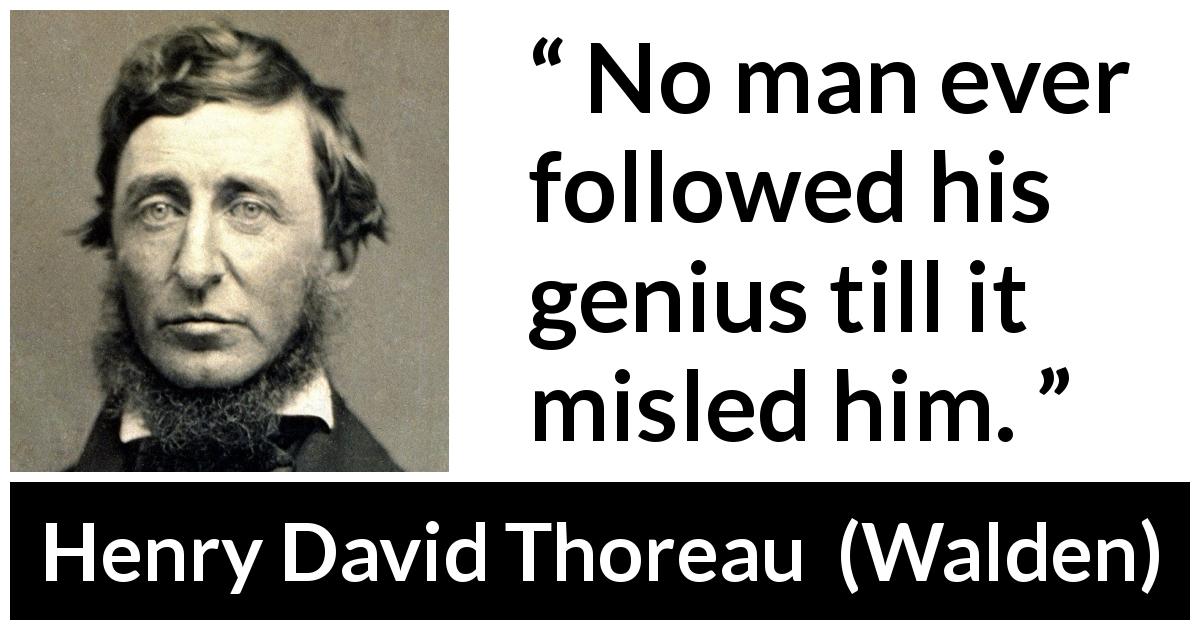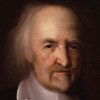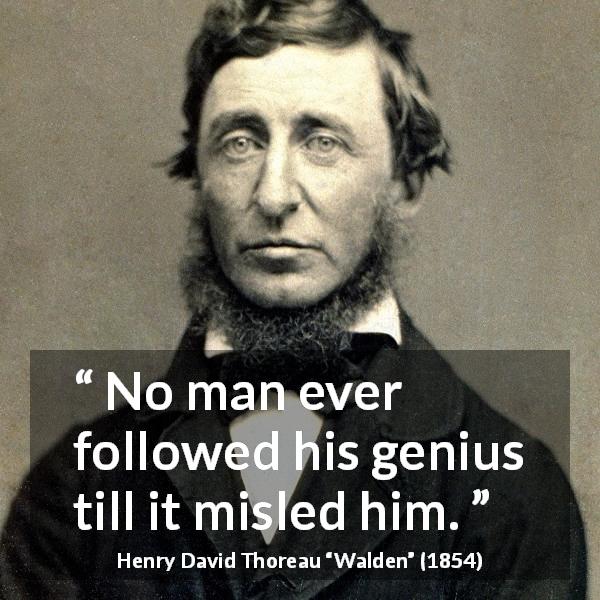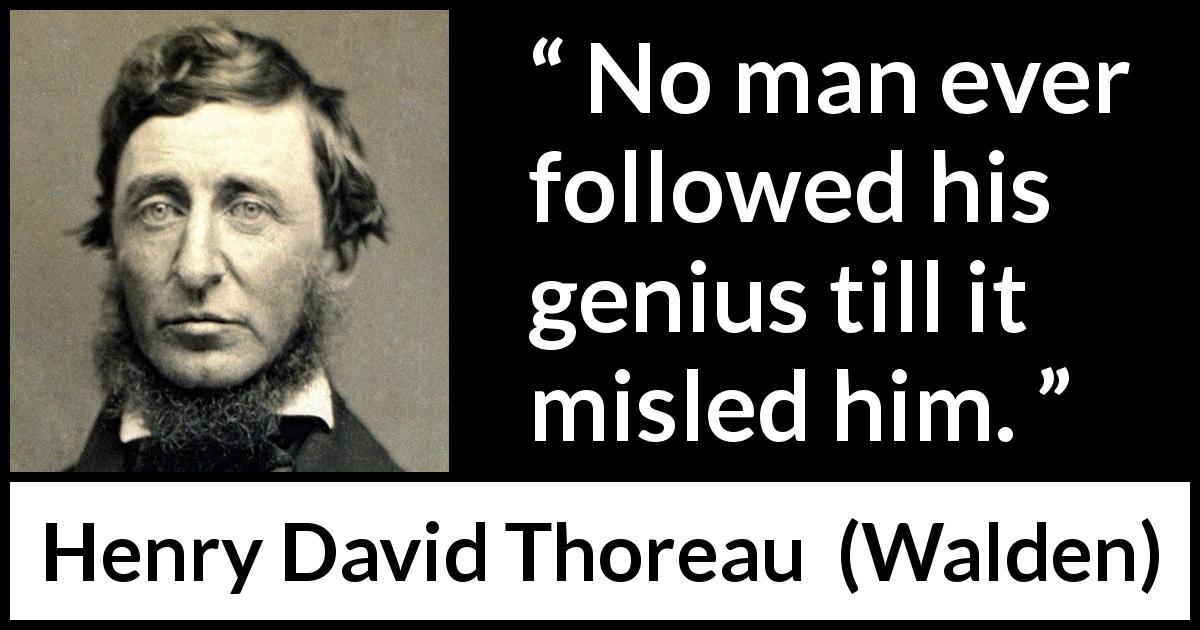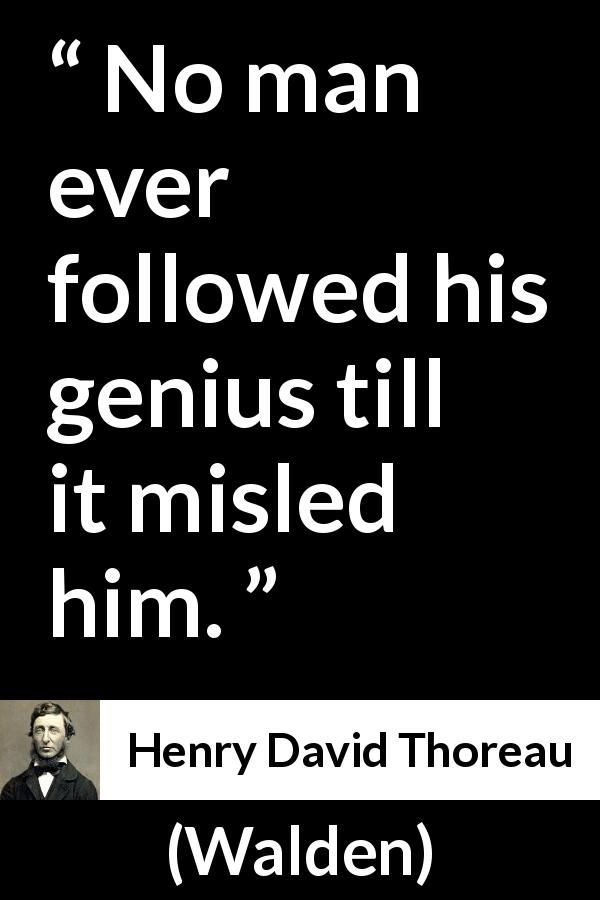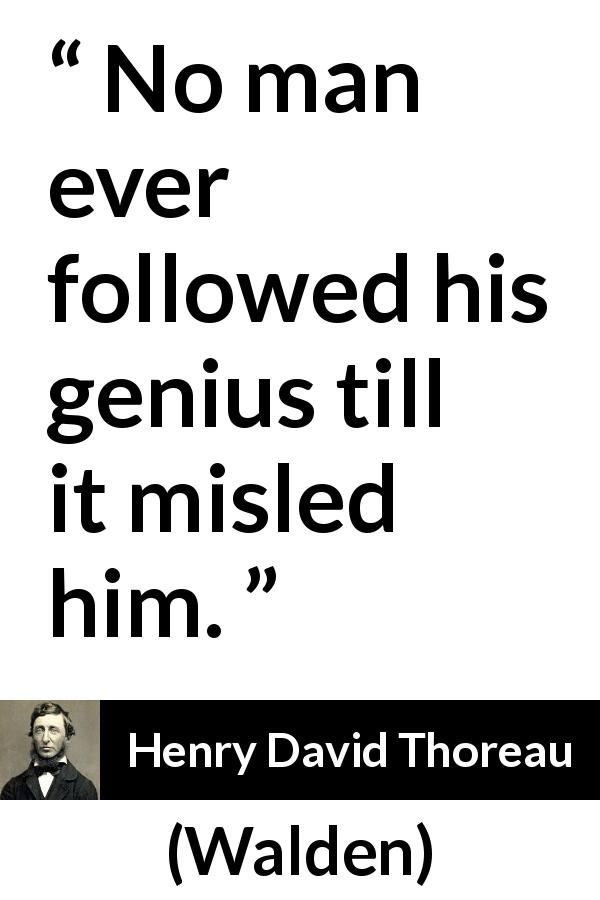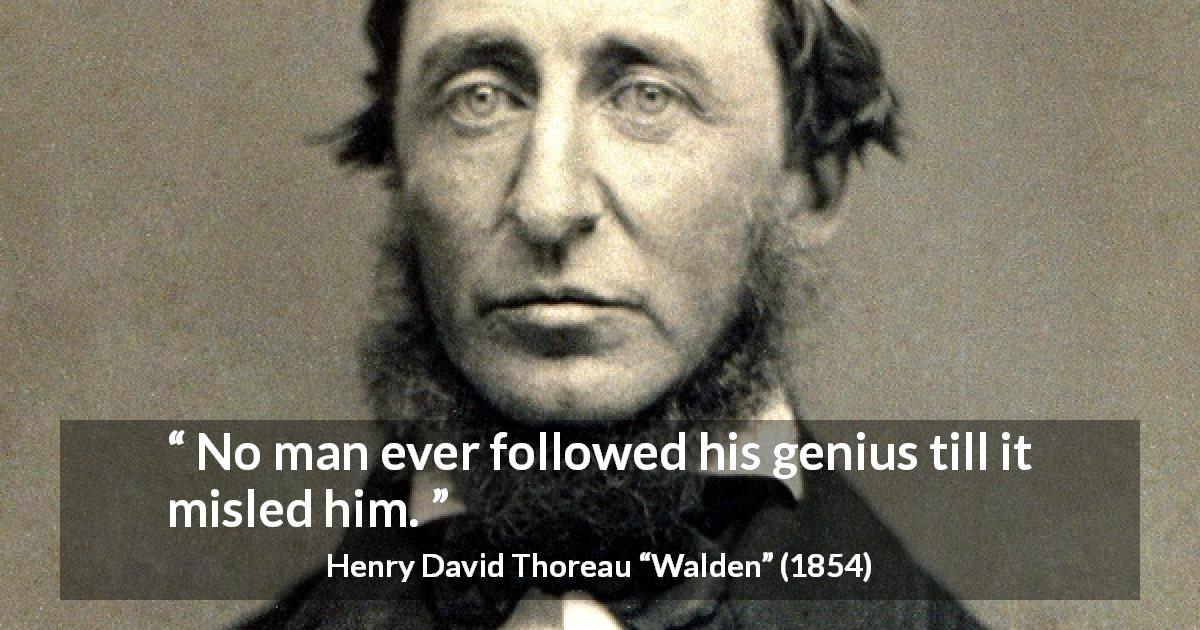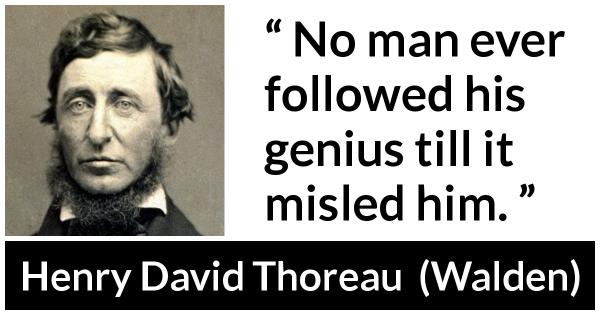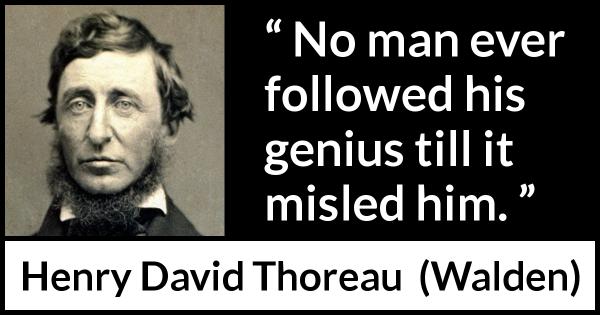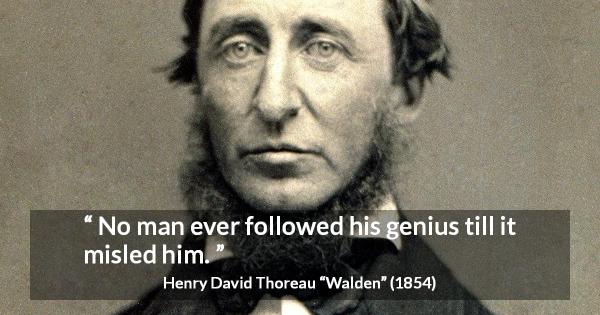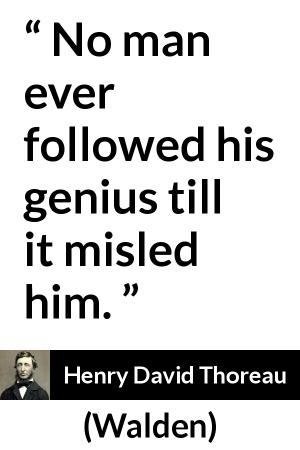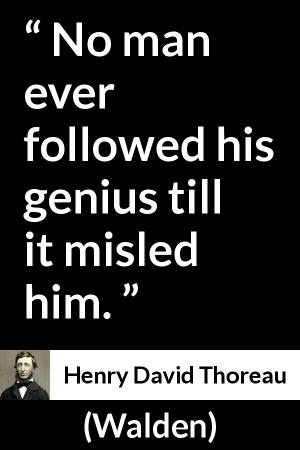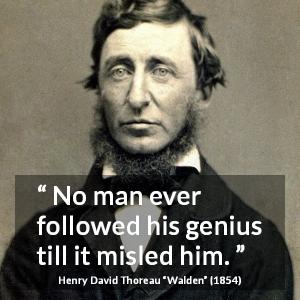“ No man ever followed his genius till it misled him. ”
Henry David Thoreau, Walden (1854). copy citation
| Author | Henry David Thoreau |
|---|---|
| Source | Walden |
| Topic | folly genius |
| Date | 1854 |
| Language | English |
| Reference | |
| Note | |
| Weblink | https://www.gutenberg.org/files/205/205-h/205-h.htm |
Context
“If one listens to the faintest but constant suggestions of his genius, which are certainly true, he sees not to what extremes, or even insanity, it may lead him; and yet that way, as he grows more resolute and faithful, his road lies. The faintest assured objection which one healthy man feels will at length prevail over the arguments and customs of mankind. No man ever followed his genius till it misled him. Though the result were bodily weakness, yet perhaps no one can say that the consequences were to be regretted, for these were a life in conformity to higher principles. If the day and the night are such that you greet them with joy, and life emits a fragrance like flowers and sweet-scented herbs, is more elastic, more starry, more immortal,—that is your success.”
source
